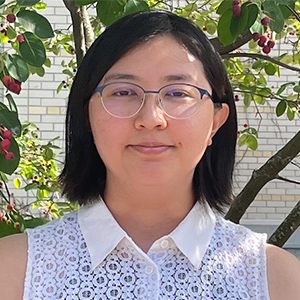Computational tools play a prominent role in many of the physical objects that surround us. We use them for designing objects, controlling the machines that make them, and optimizing the fabrication process.
Studying programs that make physical objects both allows us to apply CS and mathematical theory to a broad range of practical applications, and provides us with interesting new problems to consider. However, in order to fully leverage computation for making things, we must first define what our computation means.

In this talk, I examine this question of meaning in the domain of machine knitting, which is a well-established manufacturing technique for creating soft objects from continuous strands of yarn. I will begin by providing a mathematical definition of machine knit objects and explain why the nuances of knitting as a material require the extension of knot theory concepts fully to capture its properties.
Then, I will use this definition in a formal semantics for machine knitting programs, which allows us to reason about computational tasks such as correctness preserving program optimizations and compilation from high-level object descriptions to low-level machine code. This, in turn, enables a host of developments for machine knitting and its many applications. Finally, I will conclude by discussing the challenges of applying formal methods to the often nebulous domain of physical fabrication, and how I believe human intuition is the key behind practical advancements.
Jenny Lin is a Ph.D. candidate in Carnegie Mellon University’s Computer Science Department, where she works in the Textiles Lab, and is advised by Professor James McCann. Her interests lie in creating better computational tools for optimizing physical fabrication, with a focus on low-level representations that provide guarantees for high-level fabrication tasks.
Her research on machine knitting has been published at high-impact venues such as SIGGRAPH and ICRA, and her educational materials have been used in multiple computational fabrication courses. She received her Bachelors in Computer Science and Molecular Biology from the Massachusetts Institute of Technology. She is also infamous for her tenure on the organizing committee for SIGBOVIK, the longest-running joke conference for comedic computer science “research”.